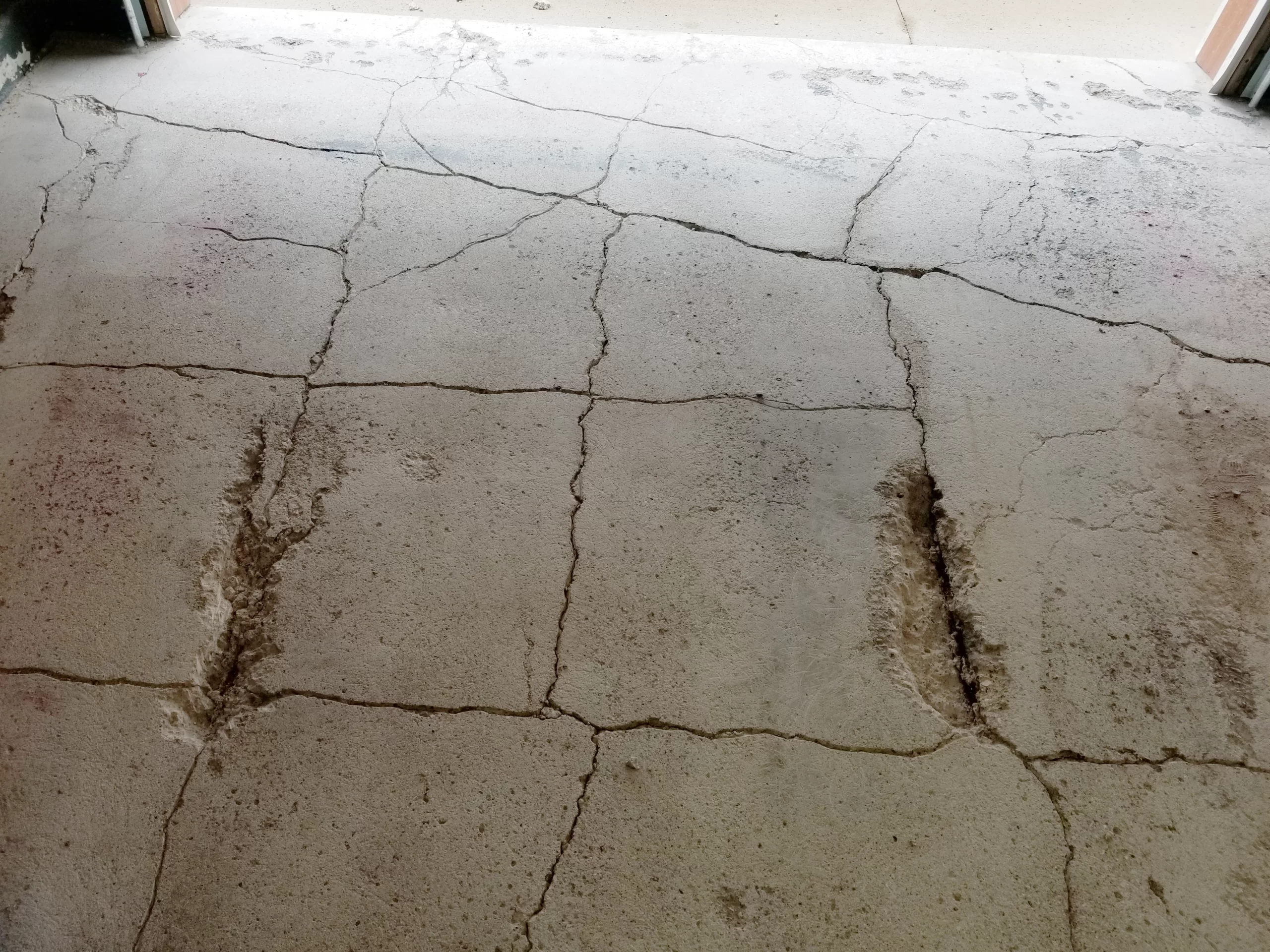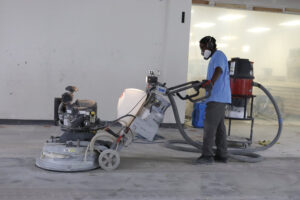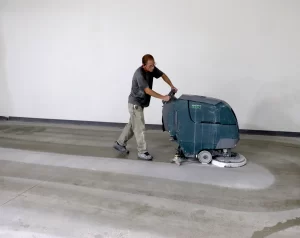If you’re reading this, you’ve most likely looked at some troubling signs of degrading concrete recently. Perhaps you’ve got some spalling or pop outs on your garage floor and you need to know if you’ve got to get it re-poured. The good news is that most damage can be fixed easily, but it’s a good idea to make sure you’re making a repair that will last. There are a multitude of conditions that can affect concrete beyond repair.
Corrosion of metals within the concrete can become severe enough that the concrete slab may need to be replaced. Concrete is often poured over steel rebar to reinforce the slab or structure. If moisture within the concrete causes the rebar to corrode, the damage from the corrosion will spread into the concrete and cause massive deterioration. Because rebar is embedded deep within concrete, repairing damage caused by its corrosion usually requires removal and replacement of a significant amount of concrete.
Sometimes a chemical reaction is to blame for the deterioration of your concrete. Common road salts can absorb into your concrete and cause damage over time. There is also the danger of alkali silica reactions within concrete aggregate. Alkali silica reactions are a reaction between sodium oxide and potassium oxide when they are both present in either the stone aggregate or the cementing material in the concrete. When they react, it creates a gel-like substance within the concrete that expands after the concrete has cured. This expansion causes a uniform cracking pattern called “map cracking” loosely referring to the random nature of the cracks appearing like a road atlas. Alkali silica reactions can be slowed by controlling the moisture levels of the concrete, but the problem will only worsen over time.
There are many factors to consider when addressing concrete damage. It’s important to consult a professional who can correctly identify if you have a larger problem within your concrete that is worth fixing right away before it becomes an even more costly problem. By acting quickly enough, you just might be able to save yourself a big headache, and an even bigger chunk of change.





